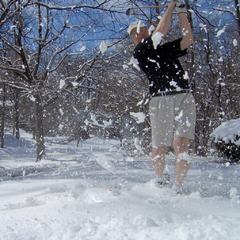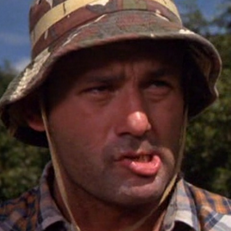The WHS
I recently attended a USGA sponsored seminar on the new World Handicap System (WHS). Our Club needed to have one member certified by the USGA and as handicap chairman, I was the logical choice.
As a member of TST and from reading material on the WHS, I was familiar with the general outline of the changes and new procedures. My hope was that the seminar would fill in a lot of the details. It did. Two items on the agenda were most interesting to me.
Playing Conditions Calculation
Because of its newness in the USA, the Playing Conditions Calculation (PCC) was particularly interesting to me. Based on the day’s scores, everyone’s posted handicap results may be adjusted when the scoring is particularly worse or better than usual. The adjustment is done course by course rather than over a region or state. Any condition that might affect scoring could result in a PCC adjustment (rain, wind, rough, temperature, hole locations). The PCC doesn’t need to know why the scoring was higher, just that the average handicapped scoring was well above (or below) what one might expect on a typical day.
At the end of each day, GHIN will automatically look at each course and the scores posted. If a minimum of 8 players with indexes 36.0 and under post scores, a PCC calculation will be made for that specific course. When there are only 8-10 scores posted, the likelihood of a PCC adjustment is very low unless the scores posted were extremely divergent from what one might have expected. A day where 100 scores are posted has a higher likelihood of a PCC adjustment if the scores diverge from the expected level. The calculation is done every day for qualifying courses. An actual adjustment will likely be somewhat infrequent. I am not a math whiz so the fact that the USGA/R&A considers the PCC calculation as proprietary (i.e. secret) was not a disappointment. There was a bit of grumbling from some of the other attendees.
The PCC adjustment will be in whole numbers (-1, +1, +2, +3). The PCC is subtracted from all the calculated differentials of every player posting a score for the course on the day of the calculation. Differentials adjusted by PCC will be identified in a player’s handicap record. When viewing one’s handicap in GHIN, clicking on “Stats” brings up a detailed listing of the past 20 differentials. There is a column labelled PCC where one will eventually see any PCC adjustments.
Stroke Index Allocation (Handicap Holes)
For match play and maximum hole score determination (formerly ESC), the USGA is recommending a “triad system” for determining on which holes a player gives or receives strokes. The recommendation calls for viewing each nine holes as three sets of 3-holes (or a triad). The first nine holes are rated with odd number (1,3,5,…) and the second nine even. If the back nine is considerably more difficult than the front, the numbering can be flipped. So far so good. Here is where it gets tricky.
The USGA recommends that the #1 and #2 handicap holes should be allocated to the middle triad for each nine. The #1 handicap hole should be chosen from #4, 5 or 6 and the #2 handicap hole selected from holes #13, 14 or 15. If none of the middle triad holes are sufficiently difficult (among the hardest 6 holes on the course), then the #1 handicap hole can be #3 or #7 and the #2 handicap hole allocated to #12 or #16. The USGA has further recommendations for allocating handicap holes (e.g. don’t have back to back difficult holes - #1 handicap hole followed by the #3).
The USGA has begun to send their recommended new handicap hole allocations to every member club. The issue for each club now becomes whether they want to accept the recommendation. A club might face changing the #1 handicap hole from the 9th hole to the 4th hole even though the membership generally considers the 9th hole as the toughest. If the club adopts the USGA recommendations, the score cards will need to be re-printed and the membership educated.
The USGA has some good points related to match play for why they want to make these changes. If all the “stroke holes” fall at the end of each nine, often matches will be decided before the higher handicapped opponent receives most of their strokes. Similarly, by spreading the “stroke holes” across the full 18 holes, no one must give a majority of strokes extremely early in a match. Still, by somewhat forcing the allocation of handicapped holes into a pre-determined pattern, the USGA may reduce the accuracy of the “net double bogey” calculation.
Link to USGA Appendix E
Inevitably, there will be issues (e.g. an old score card not matching the new Stroke Index Allocation). On the whole I think the WHS will be more accurate in measuring our potential if we, the members, use the system correctly.
-
 1
1
-
 1
1









3 Comments
Recommended Comments
Create an account or sign in to comment
You need to be a member in order to leave a comment
Create an account
Sign up for a new account in our community. It's easy!
Register a new accountSign in
Already have an account? Sign in here.
Sign In Now